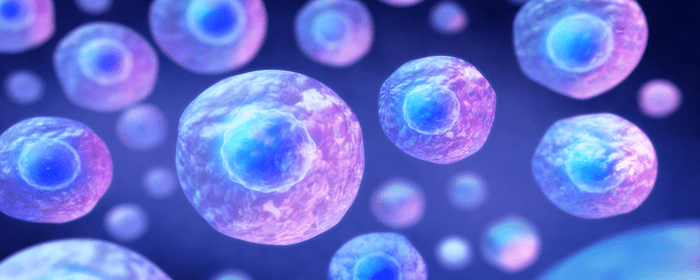
by Stemedix | Apr 15, 2024 | Multiple Sclerosis, Health Awareness, Neurodegenerative Diseases, Skin Care, Studies
Multiple sclerosis (MS) is a neurological disorder that can affect all of your body systems. People suffering from MS often report neurological, muscular, and skin problems as the disease progresses. If you have MS, you may develop puzzling skin symptoms and conditions that need to be addressed.
Your skin is the largest organ in your body, and it may need extra support if you have multiple sclerosis. Learn how MS symptoms and medications can affect your skin in your daily life.
Why MS Causes Skin Problems
Multiple sclerosis is a neurodegenerative condition that leads to increasing nerve damage over time. As a result, the ways your body experiences pain and physical sensations will change.
Nerve Degeneration
Some of this is purely neurological. As your nerves experience damage from this condition, they may misfire pain or sensitivity signals within your skin. You could have odd sensations, sensitivity to cold and light touch, and other skin problems.
Medication Side Effects
Additionally, Multiple sclerosis medications can lead to negative effects on your skin. Some of these prescriptions may irritate or inflame soft tissues in your body. As a result, you may experience infections, lesions, and rashes.
Common Neurological Skin Symptoms and Problems
When your nerves aren’t working properly, the way your body senses and responds to external stimuli (like touch) changes. These symptoms are what’s known as neurological skin problems. They don’t directly affect the appearance or texture of your skin, but these issues do impair your daily life.
Paresthesia
One of the earliest symptoms of Multiple sclerosis is paresthesia. This broad skin sensation can manifest in many different ways. Not everyone who experiences paresthesia has MS, but most MS patients deal with paresthesia at some point.
Some symptoms of paresthesia include:
- Numbness
- Tingling
- Prickling sensations
- Burning
- “Pins and needles”
- Tickling sensations
- Feeling like your skin is “crawling”
These symptoms show up even when nothing is physically touching your skin. Paresthesia is most common in your extremities — fingers, toes, hands, feet, legs, and arms. However, you may experience paresthesia in different spots on your body over time.
Neuropathic Itch
This skin problem is slightly different from paresthesia. When you develop neuropathic itch, it may feel like nothing will relieve the deep burning itch. Many MS patients struggle with this, and it doesn’t always involve external touches or stimuli.
Another name for neuropathic itch is pruritus. Even if there’s nothing physical causing the itch, it’s still a real sensation. It can be frustrating when the itch won’t resolve, even if you’ve scratched your skin excessively.
Skin Sensitivity: Cold, Touch, and More
MS patients experience extreme sensitivity to heat, cold, and touch due to nerve damage. This means even the lightest touch or slightest change in temperature can trigger a strong reaction in your body.
This makes everyday life difficult for obvious reasons. When you feel extreme pain and aversion to light touch or mild temperatures, it can be difficult to complete tasks and participate in society.
MS Medication and Skin Problems
Many MS patients have medications prescribed from their physician. However, the side effects aren’t always pleasant, particularly when it comes to your skin.
There are a wide variety of prescription drugs used to treat MS, so your specific symptoms will depend on what you’re taking. For example, monoclonal antibodies target certain immune cells to reduce the neurodegenerative and inflammatory effects of MS. However, this can irritate your skin and cause other unwanted side effects.
Here are some of the skin symptoms you may notice after taking MS medications.
Hives and Rashes
Patchy, itchy spots and raised hives can both stem from MS medications. This is because MS prescriptions deal with your immune system, inflammatory responses, and other bodily processes. These systems can and do interact with your skin, and sometimes, it responds by breaking out in hives or rashes.
Redness and Flushing
Some oral MS medications cause hot flashes, which make your skin look red and flushed. This is similar to the temporary skin sensations caused by exercise or anxiety. Most flushing sensations go away within 30 minutes of taking your medication, but they can still be a nuisance.
Skin Lesions
Some injections and infusions that treat MS can lead to skin lesions, which can affect your confidence and comfort. You may notice large or small skin lesions, with some being discolored or bruised.
Secondary Infections
When you have MS, your immune system constantly works overtime. This can weaken your defenses against secondary infections, like skin infections.
Scratching weakens your skin barrier, which can allow bacteria to enter your skin matrix and cause infections. If you’re dealing with neuropathic itch, you’re especially at risk.
Certain MS medications also make you more susceptible to skin infections. Injectable prescriptions carry the risk of exposing bacteria to different layers of your skin. Improper needle use and poor needle hygiene can both result in skin infections.
You’ll need antibiotic treatments for secondary skin infections, as these are bacterial and won’t go away on their own. Always consult your doctor for help with skin infections.
Care for Your Body to Reduce Your Skin’s Risk
Having MS is exhausting and can be debilitating. However, practicing physical and emotional self-care whenever possible can be beneficial. Caring for your overall health can reduce the impact MS has on your skin, making it less susceptible to infections and unpleasant symptoms.
Some forms of self-care for MS patients include:
- Getting plenty of rest
- Exercising regularly
- Journaling
- Meditating
- Eating a nutritious diet
- Doing yoga
- Spending time in MS support groups
- Talk therapy
These are all wonderful strategies for supporting your psychological and physical health when you have MS.
Be Prepared: Know the Most Common MS-Related Skin Symptoms
You can prepare yourself by learning about what you can expect after an MS diagnosis. MS has many detrimental effects on the body, but you can reduce some of these effects through stress relief and self-care. As you improve your overall well-being, you may notice skin improvements as well.

by Stemedix | Mar 18, 2024 | Autoimmune, Multiple Sclerosis, Regenerative Medicine, Rheumatoid Arthritis, Stem Cell Research, Stem Cell Therapy
Your body is generally very good at telling what’s a foreign invader, like a virus or bacteria, and what’s not — but sometimes, it gets it wrong.
If you have an autoimmune disease, your immune system has begun to associate parts of your body, like your skin or joints, as foreign. When this occurs, the body releases antibodies that attack those healthy cells.
Essentially, your immune system overreacts. That’s what leads to autoimmune diseases. There are many of these kinds of illnesses, but some are much more common than others.
1. Rheumatoid Arthritis: Attacking Your Joints
Rheumatoid arthritis is a disease in which your immune system attacks the joints throughout your body. It attacks the joints on both sides of your body and leads to uncontrolled inflammation that damages cartilage. The joints can begin to deform, and your bones can even erode.
You can experience symptoms like:
- Pain, stiffness, and swelling in joints
- Fatigue
- Fever
- Weakness
With rheumatoid arthritis, you can have periods of remission when you have few to no symptoms, but these are followed by flare-ups.
2. Type One Diabetes: Targeting Insulin-Producing Cells
Your pancreas produces a hormone called insulin, which regulates your blood sugar levels. If you have type one diabetes, your immune system attacks the cells in your pancreas that produce insulin. You can experience symptoms like:
- Extreme thirst
- Fatigue
- Blurred vision
- Frequent urination
- Weight loss
- Vaginal yeast infections
- Slow healing of sores and cuts
Type one diabetes has a strong genetic component, and there may be certain environmental factors, like viruses or toxins, that can also trigger the disease if you have a predisposition.
3. Multiple Sclerosis: Damaging Myelin Sheaths
Multiple sclerosis is an autoimmune disease that damages the coating that surrounds nerve cells. These are called myelin sheaths, and if they’re damaged, the transmission speed of messages between your brain and your spinal cord can be delayed.
You can experience symptoms like:
- Muscle weakness
- Numbness
- Changes to your vision
- Loss of balance
- Mood changes
- Trouble with cognitive function
You can experience remission periods in which you may not have any symptoms.
4. Psoriasis: Leading Skin Cells to Multiple Too Quickly
Usually, skin cells grow and then die off and shed. Psoriasis causes cells to multiply too rapidly, leading to the formation of patches. People who have lighter skin tones can have patches that appear red with white plaque scales, while on darker skin tones, the patches can appear purple or dark brown with gray scales.
It can cause symptoms like:
- Raised areas of thick skin
- Rashes
- Flaky or scaly plaque
There are a few types of psoriasis, with some appearing in your skin folds and some even causing pus-filled bumps.
5. Inflammatory Bowel Disease: Swelling in the Intestinal Wall
Inflammatory bowel disease causes the lining of the intestinal wall to swell. Different parts of your gastrointestinal tract are affected depending on where the inflammation is located.
Symptoms include:
- Abdominal pain
- Anemia
- Malnutrition
- Weight loss
- Rectal bleeding
- Fecal incontinence
One type of inflammatory bowel disease is Crohn’s disease, which can cause inflammation anywhere along the tract, from your mouth to your anus. Ulcerative colitis, however, affects the lining of the large intestine and rectum. Microscopic colitis causes inflammation that can only be seen via a microscope.
6. Lupus: Causing Inflammation Throughout Your Body
Lupus is an autoimmune disease that causes your immune system to attack your entire body. Common symptoms include:
- Fatigue
- Shortness of breath
- Swollen glands
- Hair loss
- Fever
- Rashes
- Blood clots
- Confusion
There are a few types of lupus, including lupus that only affects your skin and medication-induced lupus.
7. Graves’ Disease: Overworking Your Thyroid
This type of immune disease attacks your thyroid gland, leading it to produce too many hormones. This can lead you to experience symptoms like:
- Fast heartbeat
- Unintentional weight loss
- Goiter
- Heat intolerance
Some people who have this condition can experience symptoms that affect the skin or eyes.
8. Addison’s Disease: Impacting the Adrenal Glands
Addison’s disease is a chronic condition in which your adrenal glands don’t produce enough cortisol and aldosterone. Cortisol is a hormone that helps your body respond to stress while also helping you maintain blood pressure, heart function, and more. Aldosterone is a hormone that controls your body’s sodium and potassium levels.
You can experience symptoms like:
- Nausea
- Vomiting
- Abdominal pain
- Patches of dark skin
- Fatigue that gets progressively worse
- Loss of appetite
- Dehydration
Some people also experience low blood sugar levels with the disease.
9. Sjögren’s Disease: Causing Dry Eyes and Mouth
This illness occurs when your immune system attacks the glands that create moisture in your mouth, eyes, and other parts of your body. There is primary Sjögren’s disease, which occurs on its own, and secondary Sjögren’s disease, which happens when another condition triggers the disease.
You can experience symptoms like:
- Dry nose and frequent nosebleeds
- Vaginal dryness
- Dry and itchy eyes
- Dry throat
Some people also experience muscle pain, swollen lymph nodes, and even trouble swallowing.
10. Celiac Disease: Attacking the GI Tract
People who have Celiac disease can’t have gluten, which is a protein found in rye, wheat, and other grain products. If you have this disease, your immune system reacts to any gluten it finds in the small intestine, leading to inflammation. You can experience symptoms like:
- Diarrhea
- Vomiting
- Abdominal bleeding
- Constipation
Because your immune system attacks your gut if you eat gluten, it doesn’t allow you to receive the nutrients you need. People may experience nutritional deficiencies that can cause many other symptoms.
Managing Autoimmune Diseases with Regenerative Medicine
Most autoimmune conditions can be managed. One of the most promising options, especially when combined with other treatments, is regenerative medicine.
Regenerative medicine options like stem cell therapy harness your body’s natural healing mechanisms. They can help reduce inflammation, which plays a huge role in most autoimmune diseases. With less inflammation, blood circulation improves, bringing more nutrients and oxygen to the affected areas.
To determine whether regenerative medicine is a good choice to help manage your autoimmune conditions, consult with your doctor.

by Stemedix | Jan 22, 2024 | Health Awareness, Multiple Sclerosis, Parkinson's Disease, PRP, Stem Cell Research, Stem Cell Therapy, Studies
Regenerative medicine options like stem cell treatments are growing in popularity both because of their potential effectiveness and because they can help you avoid invasive procedures like surgeries. Stem cell therapies focus on helping your body improve what it already does naturally — heal injuries.
Stem cells are the cells from which all differentiated cells form. They can come from your bone marrow or fat, with some people also turning to umbilical cord stem cells for treatment. But how do you know if you could benefit from stem cell therapy?
Those With Sports Injuries
If you play sports, you know that injuries can occur at any moment. You can twist your body in an unnatural way or suffer an impact that damages joints or ligaments. Minor injuries usually benefit from ice packs and rest, but healing can take time.
Healing is also a delicate process that can be disrupted. If that occurs, the injury might not heal completely and could lead to chronic issues that impact your mobility and even cause lasting pain.
When you turn to stem cell therapies, you can speed up the healing process. This type of regenerative medicine helps reduce inflammation, making it easier for nutrients and oxygen to get to the site of the injury.
Increased oxygen and nutrients are particularly important when dealing with ligaments and cartilage, which naturally don’t receive much blood flow.
Those With Arthritis
Arthritis is a debilitating condition in which your joints’ cartilage starts to deteriorate. The cartilage is what cushions your joints, preventing the bones from rubbing against one another. Once the cartilage breaks down, you can experience pain, stiffness, and mobility issues. In some cases, it can even cause joint deformity.
Stem cells, especially mesenchymal stem cells, release anti-inflammatory factors that help with pain and encourage your body to heal the damaged areas. Stem cells injected into the affected joint can reduce swelling, helping reduce pain and also restoring some mobility to stiff joints.
One of the best things about stem cell therapies for arthritis is that this kind of treatment is minimally invasive.
Those With Spinal Cord Injuries
Spinal cord injuries may severely impact your quality of life. You may struggle to perform everyday tasks and could face mobility issues that leave you dependent on others.
Spinal cord injuries are particularly difficult to treat because healing tends to plateau as a result of microenvironmental changes like inflammation, glial scar formation, and more. Stem cells can help because of their power to reduce inflammation, allowing the healing process to continue.
Ongoing treatment with stem cells could offer an improvement in mobility and a reduction in pain levels.
Those With Traumatic Injuries
After a major injury, like one that results from a car accident, healing can seem impossible. You may experience significant pain and could be dealing with mobility concerns that require physical therapy and even surgery.
Stem cell therapy works well in conjunction with physical therapy and other treatments because it utilizes cells from your body gathered in a minimally invasive way. You can continue other therapeutic programs while giving your body the chance to reduce inflammation so that blood can reach the injury site.
A better level of blood flow to the area not only brings nutrients and oxygen but also helps flush out toxins at the injury site that could make the symptoms worse.
Those Who’ve Gone Through Surgery
Going through surgery can put a lot of strain on your body. That is one of the reasons why the recovery process is often so long. If you’ve been through a surgical procedure, consider stem cell therapy.
Stem cell therapy can help reduce the recovery time so that you can start feeling more like yourself again. Inflammation is a huge concern. Think of the kinds of bruising you may have after a surgical procedure. Although stem cell therapy can’t prevent all inflammation and bruising, its use after surgery can reduce how much you experience.
If there’s less inflammation, the area can receive more nutrients and experience faster healing.
Those Who Need Joint Replacements
Replacing a joint is a surgical procedure that requires the implantation of an artificial joint and the removal of the damaged one. The recovery process for this type of procedure tends to be difficult, with many people experiencing mobility issues even as they heal because the artificial part hasn’t really integrated into the rest of the tissue.
If this type of surgery is something that you have to go through, adding stem cell therapy to the recovery process makes a difference. Stem cell therapies encourage the growth of new tissues around the artificial replacement that can make mobility easier and decrease pain, helping you get back to your life more rapidly.
Those With Degenerative Diseases
Degenerative diseases are chronic conditions that progressively get worse. They include diseases like:
For these conditions, a combination of treatments is usually most effective. They can include medications, physical therapy, and even surgery. By also turning to stem cell therapy, you have the chance to tackle the underlying cause of the problem so that you can get relief from symptoms.
Stem cell therapy for Parkinson’s disease, for example, focuses on helping restore the failing neurons that are in charge of producing dopamine. This could help with the management of dopamine levels and could even restore some function. In many instances, stem cell therapy for Parkinson’s can even slow down the disease.
Is Stem Cell Therapy Right for You?
Stem cell therapy might be able to offer the help you need with managing degenerative conditions, healing injuries, and providing pain relief that doesn’t rely on narcotics. You don’t have to worry about suffering allergic reactions or rejections because stem cell therapies usually rely on cells from your body.
If you’re considering stem cell treatments or want to know more about what the process involves and what you can expect, talk with a regenerative medicine specialist about the options available.

by admin | Jan 18, 2024 | Multiple Sclerosis, Mesenchymal Stem Cells, Stem Cell Research, Stem Cell Therapy
Multiple sclerosis (MS) is a progressive autoimmune disease that affects the brain, spinal cord, and central nervous system (CNS). Affecting an estimated 3 million people worldwide, MS is typically characterized by an autoimmune response that results in inflammation, demyelination, and degeneration of axons.
Most patients who are diagnosed with MS demonstrate a disease progression characterized by periods of relapse and remission that can last for an extended duration.
There is no treatment that can yet address the various rates of MS progression. Additionally, current therapeutic approaches are designed to address the shortening of the duration of recovery following an attack, mitigating the progression of the disease, and attenuating the symptoms associated with MS.
Recently, mesenchymal stem cells (MSCs) have shown various ranges of effectiveness when used for treatment of autoimmune diseases in clinical trials. However, most of the trials utilizing MSCs for this purpose have been reported for a variety of reasons, including a low number of treated subjects, different doses used in the studies, the feasibility of autologous or allogeneic transplantation, and the unclear therapeutic window after the treatment effect.
Considering this, the purpose of Islam et al.’s systematic review and meta-analysis (SRMA) was to provide a comprehensive assessment of the effectiveness and safety of MSC therapy in individuals diagnosed with MS. To achieve this, the authors identified studies that reported on the efficacy and safety of MSC therapy in human patients with MS based on the changes in the Expanded Disability Status Scale (EDSS) score from baseline to follow-up period. This screening process resulted in a total of 30 studies being incorporated into the systematic review and 22 studies being included in the subsequent meta-analysis.
Islam et al. reported that, following MSC therapy, it was observed that 40.4% of the patients with MS experienced improvement; 32.8% of patients remained stable while 18.1% experienced a worsening of their condition. In terms of the safety of MSC therapy, the authors reported that while no major complications were observed, headaches (57.6%), fever (53.1%), urinary tract infections (23.9%), and respiratory tract infections (7.9%) were the most commonly reported adverse events.
While further research, the development of new technology, optimization of MSC doses, and larger clinical trials are needed to fully evaluate the use of MSC therapy in the treatment of MS, the authors conclude that the results of this SRMA indicate that MSC therapy seems to be an efficacious therapeutic strategy for treating patients with MS.
Source: Islam MA, Alam SS, Kundu S, Ahmed S, Sultana S, Patar A, Hossan T. Mesenchymal Stem Cell Therapy in Multiple Sclerosis: A Systematic Review and Meta-Analysis. Journal of Clinical Medicine. 2023; 12(19):6311. https://doi.org/10.3390/jcm12196311

by Stemedix | Nov 6, 2023 | Multiple Sclerosis, Autoimmune, Chronic Pain, Musculoskeletal, Stem Cell Research, Stem Cell Therapy, Studies
Around the world, an estimated 1.8 million people live with multiple sclerosis. This autoimmune condition is chronic and can affect your life expectancy. The right treatment options, however, may impact the outcome you can expect. Learn about multiple sclerosis life expectancy and how the latest treatments help.
Understanding Multiple Sclerosis
Multiple sclerosis is a chronic autoimmune condition in which your immune system mistakenly attacks the sheaths that surround and protect the nerves in the spinal cord and brain, called the myelin. A damaged myelin interferes with the signals your brain sends to other parts of your body.
Symptoms of multiple sclerosis include:
- Fatigue
- Muscle weakness
- Muscle spasms
- Changes in gait
- Loss of coordination or balance
- Numbness or tingling in arms or legs
The causes of multiple sclerosis vary and are not always clear. They include being exposed to certain viruses or bacteria. People who had particular infections, like Epstein-Barr exposure, are more likely to develop MS. Other causes may be your environment, genetic mutations, and even how your immune system functions.
Diagnosing Multiple Sclerosis
Getting an accurate diagnosis is one of the most crucial steps if you have multiple sclerosis. A definite test has not been developed for MS, but the symptoms you experience will lead your doctor to perform a physical exam, take blood, and get imaging tests like MRIs.
MRIs can catch any lesions in your spinal cord or brain. These lesions develop as the disease damages the myelin. Your doctor may also perform a spinal tap.
If these tests don’t offer a definite diagnosis, you may have to undergo an evoked potentials test. This test checks for nerve damage by measuring electrical activity in the spinal cord and brain.
Multiple Sclerosis Life Expectancy: Factors to Consider
Newly diagnosed patients with MS who don’t have severe disabilities have a life expectancy of 30 years or more, but lots of factors play a role in determining this number. Your unique circumstances impact life expectancy.
Disability Status
The Expanded Disability Status Scale (EDSS) is an important factor for healthcare providers attempting to provide an estimated life expectancy. The EDSS measures the level of disability in patients with MS. Everything from loss of independent ambulation to cognitive function is measured to provide the EDSS score.
Mental Health
People with MS who experience mental health concerns like depression and anxiety may have a lower life expectancy. This is because mental health significantly impacts physical health and can even worsen the symptoms of MS.
Compliance With Therapeutic Regimen
Following treatments as required impacts how the disease progresses, which then impacts your life expectancy. The type of treatment you receive is a factor.
Lifestyle Changes to Improve Life Expectancy
For many people with MS, making some lifestyle changes helps impact their life expectancy. Diet is one of the changes.
Following a healthy diet helps you manage symptoms while also improving your overall health. For MS patients, decreasing the intake of saturated fats and instead consuming omega-3 polyunsaturated fatty acids helps prevent myelin loss in the central nervous system.
Adding stress management techniques to your life is another change you can make. Stress makes MS symptoms worse. Trying breathing exercises, meditation, or turning to a therapist. These strategies can all improve your stress levels and impact your overall health.
You also want to add physical exercise to your routine. Physical exercise may help slow down disease progression. Aerobic exercise may be able to decrease inflammation. It can also aid in decreasing depression and other mental health concerns that are a result of MS.
Staying at a healthy weight is also vital for increasing life expectancy. People with MS have a higher risk of malnutrition, and they are more prone to being both underweight and overweight. Adding exercise to your day and improving your food choices will help you correct any nutritional issues you have, leading to better overall health.
Getting better sleep is another important change you can make, as well as quitting any form of nicotine you may use. Smoking increases inflammation, which can make MS symptoms worse.
How Regenerative Medicine Can Help
For people with MS, one promising treatment option is regenerative treatments like stem cell therapy. More people are turning to stem cell therapy because it may be able to decrease inflammation and improve symptoms with minimally invasive measures.
Stem cell therapy uses stem cells, which are the cells that differentiate into the many types of cells in the body. For multiple sclerosis, mesenchymal stem cells are particularly useful because of their ability to repair myelin. They may also have a positive impact on the immune system.
For this type of treatment, your healthcare provider removes stem cells from your bone marrow or fat, preparing them for an injection to reintroduce them into the body. Stem cell therapy is a great option for those searching for minimally invasive treatments that don’t require a long recovery process.
Stem cell therapy gets right to the cause of MS symptoms: the damage of myelin. Unlike other treatment options, studies have shown that regenerative medicine has the potential to help with symptom management, slowing down progression, and provide a better quality of life.
It is also a treatment option that may be less likely to cause side effects because the stem cells usually come from your body.
Living With Multiple Sclerosis
Getting a diagnosis of multiple sclerosis can be stressful, but it’s crucial to know that many people with the condition live full and happy lives. Advances in medicine have made it easier than ever to extend your life expectancy with conditions like multiple sclerosis, especially if you receive an early diagnosis.
Stem cell therapy and other forms of regenerative medicine work to offer you the help you need while targeting the cause of the disease. By combining stem cell therapy with lifestyle changes like exercising and eating better, you may be giving your body the ability to slow down the disease’s progression while improving your overall health.

by Stemedix | Oct 23, 2023 | Multiple Sclerosis
Almost one million people in the United States live with multiple sclerosis (MS). MS is a chronic neurological condition affecting the nerve fibers in the central nervous system.
Receiving a diagnosis of multiple sclerosis is difficult, and it can be even tougher to really understand what that prognosis means in terms of your quality of life. Read more about what a prognosis of MS means for your life expectancy and more.
What Is Multiple Sclerosis? Symptoms and Causes
MS is an autoimmune condition, which is a type of condition that leads your immune system to attack healthy cells by mistake. With MS, your immune system attacks the cells in myelin, which you can think of as protective covers over the nerves in your brain and spinal cord. The most common symptoms of MS are:
- Fatigue
- Changes in gait
- Tingling or numbness in arms or legs
- Muscle spasms
- Muscle weakness
- Loss of balance
- Loss of coordination
Although the exact causes of multiple sclerosis are not fully understood, scientists believe that certain factors trigger the condition. One of these factors is the exposure to certain bacteria or viruses, including the Epstein-Barr virus.
Another factor that might trigger MS is your environment. Areas farther from the equator tend to have higher numbers of MS cases, which may mean that those who receive less sun are more at risk because having lower levels of vitamin D seems to be a risk factor.
Having a family member with MS also increases your chances of developing the condition. It’s not yet clear, however, what gene mutations are responsible for the condition.
Types of Multiple Sclerosis
Most people assume that there is only one type of MS, but there are four. The most common type is relapsing-remitting MS. With this version of MS, you experience flare-ups with new symptoms or existing symptoms that get worse. You then experience a period of remission.
Clinically isolated syndrome (CIS) is another type. People who have the first episode of MS symptoms usually get this diagnosis until they have another episode. Not everyone who has an episode of CIS goes on to develop MS.
Another version of MS is primary progressive MS. People with this type experience symptoms that gradually get worse without any periods of remission.
Secondary progressive MS is when you continue to accumulate nerve damage. Symptoms get worse, though you may also experience some flare-ups. Most people with this type of MS do not experience remission.
Stages of MS and Their Effect on Prognosis
Because MS is a condition that gradually gets worse, the stage in which you receive your diagnosis is an important factor in your prognosis. There are early, middle, and late stages.
MS, in its early stages, presents with a series of relapses and remissions. You may experience mild to moderate mobility issues, as well as sensory function and cognition problems. When caught at this stage, most people have a better prognosis.
The middle stage of MS is when the milder symptoms get worse, seriously impacting coordination, mobility, and cognitive function. This is when rehabilitation interventions are crucial.
The late MS stage is when there’s severe disability, including cognitive decline, mobility impairments, and other complications. To manage daily life, you’ll need substantial assistance at this stage.
By catching the diagnosis as early as possible, you may have a better prognosis because all manner of interventions is available to help you minimize the progression of the conditon.
Multiple Sclerosis and Life Expectancy
Although MS is a chronic condition, it doesn’t mean you will have a shorter life. Most people with MS have a life expectancy similar to those in the general population.
One of the concerns of MS is that it can increase your risk of developing other conditions, including:
- Cardiovascular disease
- Urinary tract infections
- Depression
- Osteoporosis
Some of the factors that can make your prognosis better, however, are if you are under 40 when diagnosed and female.
Your Prognosis: How Doctors Determine It
To give you as accurate a prognosis as possible, doctors consider a variety of clinical facts, including those they obtain from evaluations, image testing, and neurological examinations. To measure the progression of the condtion, most physicians turn to a number of scoring systems, including the Expanded Disability Status Scale.
This scale assesses the rate of disability throughout many categories. Using the scale to see the progression of the condition over time, your doctor is able to give you a more accurate prognosis.
Your lifestyle is another factor doctors consider when making your prognosis. If you smoke or drink a significant amount of alcohol, you may have a more negative prognosis.
This effect is because smoking can accelerate the progression of the illness while also affecting the efficacy of some treatments. By moderating alcohol and stopping the use of nicotine, you can help yourself.
To improve your prognosis, adding exercise to your daily life is also vital. Regular physical exercise helps improve muscle strength, coordination, balance, and more while also improving your overall mood.
Your dietary choices also play a role in your prognosis. It is essential to stick to a well-balanced diet that promotes immune function and overall health. This means you want to eat primarily vegetables, fruits, lean proteins, and whole grains.
Aside from the physical impact of MS in your life, your doctors also consider how the condition affects your psyche. Having a support system is one of the most important things you can do. This support can help you see that you are not alone and boost your mood and hope.
Living With Multiple Sclerosis
Because multiple sclerosis affects your daily activities, finding ways to live with the condition can be essential. Maintaining an active life and having support are both crucial but so is knowing what treatment options are out there.
Regenerative medicine, also known as stem cell therapy, is a common explored option for the management of MS. By turning to stem cell therapy, you may be able to help slow down progression and help improve symptoms. Consider asking your doctor about stem cell therapy for MS.







 St. Petersburg, Florida
St. Petersburg, Florida
